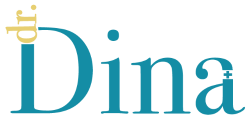When one thinks of successful people the mind may first go to what advantages the person has had such as is the person smart, rich, beautiful or well-connected? Most understand that with resources, exposure and support it may be easier to become successful. Sometimes the other advantages, however, look like disadvantages. I now look back with gratitude at some of the more challenging experiences that have allowed me to become a double Ivy League university graduate, a doctor and a business owner, in addition to those that are easier to see as favorable.
A college friend, a self-made millionaire who grew up poor, reassured me during a difficult time with the comment, “you have that New York moxie—it’ll all work out.” The New York I had grown up in, however, wasn’t the New York of today. It was bankrupt, dirty and crime ridden—I didn’t see that as an advantage—how interesting to consider that it had been.
I did have the advantage of being accepted into Harvard—the disadvantage was that I didn’t have the money to pay. With a combination of scholarships, loans and jobs, however, I was able to attend. In addition to the work that was part of my financial aid package, I took on extra work because I wanted more money–and experiences. Before I graduated I had worked as a dishwasher, psychology research assistant, security guard, shuttle dispatcher, caterer, graphic artist, and personal assistant. After college and before medical school I also worked in a library assistant, dormitory proctor, medical transcriber, receptionist, perinatal case manager and as a tutor at The Princeton Review.
Some friends who had more traditional ease of access to money at times expressed sympathy that I seemed to work so much. I sometimes had sympathy for them—that they thought of work as so hard. I gained more from work than money. Working built my confidence, sense of responsibility, as well as my problem-solving skills. Sure, I would have loved to get free money, but working gave me a feeling of power and agency. It also expanded the types of people and environments I was comfortable interacting with.
In my clinical practice as a dermatologist, I use many of my past work experiences other than my medical education and training. Many of the patients I work with are young adults of generational and economic “privilege.” Aside from their skin issues, I observe that many suffer psychologically because they had no responsibilities earlier in their lives when stakes were low. In some ways this privilege was a disadvantage.
Yes, I did have some privileges which have allowed me to achieve certain things in life. But I have to say that I can also credit some of my disadvantages as having also given me the upper hand. Success comes easier when we embrace both. Our failures can be our fortune.
Dr. Dina inspires audience in all stages of life to be resourceful, optimistic and tap into their moxie. Contact her here to hire her to speak to your organization on “Moxie: the advantage of disadvantage.”




